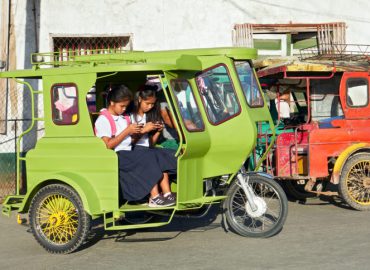.
By Elijah Felice E. Rosales & Jasper Emmanuel Y. Arcalas, October 3 2018; Business Mirror
https://businessmirror.com.ph/dti-sets-condition-to-allow-major-supermarkets-to-import-rice-sugar/
Image Credit to Business Mirror
Major supermarkets might be allowed to import 350,000 metric tons (MT) of rice on the condition they will sell it at government-imposed price, according to Trade Secretary Ramon M. Lopez.
Lopez said the government is considering permitting major retailers, as well as traders, to import rice and sugar. They will be allowed to do so if they write an undertaking they will sell rice at P38 per kilo and sugar at P50 per kilo.
He explained sales will be audited to verify if import stocks are really sold at the committed prices. The price-setting scheme, according to Lopez, is part of government efforts to facilitate importation and availability of basic goods through President Duterte’s Administrative Order (AO) 13.
“Basically, we will allow to import those who will give undertaking to the DTI [Department of Trade and Industry] and the DA [Department of Agriculture] that they will sell at those prices. [This is] just another idea to have quickly more P38 rice available [in] mainstream supermarkets,” the trade chief said.
In an interview with reporters on Tuesday, Lopez revealed he is amenable to permit supermarkets to import 350,000 MT of regular-milled rice.
“For the two-week [period], 350,000 MT is the initial order [we want to bring in]. For this program, we want three to five groups to import the volume,” Lopez said in a mix of English and Filipino.
“We are writing them [retailers and traders] first to prepare that application to import. The NFA [National Food Authority] will grant the [license],” he added.
Lopez defended the policy proposal as necessary to beef up supply of rice and sugar in the market, as the government struggles to weather prices of basic goods due to a reported supply shortage. Under AO 13, the President directed the DTI, DA, among others, to roll out immediate measures to remove administrative constraints and other nontariff barriers on the importation of farm goods.
The directives include the streamlining of procedures and requirements in the accreditation of importers; exempting traders already accredited from registration requirements; and facilitating importation of agricultural products beyond their authorized cap.
The AO also instructed the liberalization of permits and accreditation of traders who want to import rice to break monopoly and the temporary permission of direct importation by sugar-using industries to lower input cost.
Policy shift
IN a related development, Agriculture Secretary Emmanuel F. Piñol warned that rice traders and importers selling fancy rice in the market could now face penalties and sanctions following government’s decision to ban the importation and sale of such staple variety.
Piñol issued the pronouncement after the National Food Authority Council (NFAC) approved last week his recommendation to disallow the importation of rice with 5-percent broken or better quality by the private sector.
Piñol argued that the importation of high-quality rice translates to higher retail market prices, defeating the purpose of private-sector importation.
“By importing premium rice and selling this at P55 [per kilogram] to P60 [per kilogram], the importers were making a killing while at the same time pushing prices of rice up,” he said in a Facebook post on Tuesday.
“This also gave added pressure on the NFA rice stock because it is what most consumers could afford,” he added.
Piñol, who is also the NFAC chairman, said the new importation measure would mean more affordable rice for Filipino consumers.
“With this new policy now, succeeding importation by the private sector will involve 25-percent broken rice, which could be sold for as low as P38 per kilogram,” he said.
“Any imported fancy rice sold in the market after the effectivity of this new policy would be considered smuggled rice and subject to seizure and confiscation,” he added.
Given the policy shift for rice imports, Piñol said it would be the local farmers that would serve the market with fancy and premium-grade staple varieties.
“The supply of fancy or premium rice in the market will now be done by the Filipino rice farmers with Dinorado, Milagrosa, Jasponica, RC 160, heirloom rice and other indigenous rice varieties,” he said.
Piñol also said the mandatory sanitary and phytosanitary inspection on foreign rice warehouses would ensure that the rice shipments being exported to the country would comply with the 25-percent brokens quality requirement.
Piñol disclosed on Monday that the Department of Agriculture and NFA would send people abroad to inspect warehouses, where rice imports are sourced from, to ensure that their stocks are fit for human consumption.
“The measure is also expected to check on the compliance by private importers to the new policy of the NFAC, which allows the importation only of rice classified as 25-percent broken,” he said.

